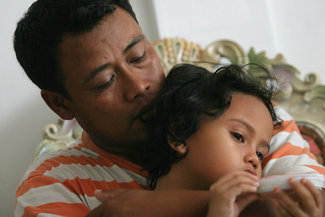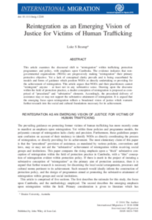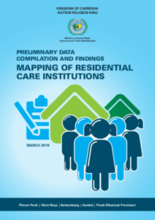

Displaying 461 - 470 of 753
Singapore’s Ministry of Social and Family Development (MSF) will be launching a new pilot project by December which aims to enhance parenting skills and overall functioning in vulnerable families, according to the article.
This article examines the discoursal shift to “reintegration” within trafficking protection programmes and policy, with emphasis upon Cambodia.
This is a longitudinal mixed-method study investigating the impact of parental migration on early childhood well-being and development in Thailand. This report presents the baseline results of quantitative and qualitative surveys.
This is a longitudinal mixed-method study investigating the impact of parental migration on early childhood well-being and development in Thailand.
This article highlights the findings of a recent report on residential child care centers in Cambodia, published by the Ministry of Social Affairs, Veterans and Youth Rehabilitation (MoSVY) and UNICEF Cambodia, and discusses current programs and campaigns underway to enhance child protection and children’s rights in the country.
The Childline Foundation, along with three universities, will be conducting a mapping exercise of all child care institutions in Kerala, India, according to this article from NYOOOZ.
This article describes recent research on children in institutions in Cambodia.
A survey conducted by the Ministry of Social Affairs, Veterans and Youth Rehabilitation (MoSVY) in 2015 found that 11,788 children were living in 267 residential care institutions in five provinces alone. In 2014, only 139 residential care institutions were known to MoSVY in the same five provinces (housing 7,545 children), indicating a 92% increase in the number of recorded institutions.
Cambodia's Ministry of Social Affairs, Veterans and Youth Rehabilitation (MoSVY) conducted a mapping exercise to address a lack of information on the number of residential facilities providing care for children.
People with psychosocial disabilities (mental health conditions) in Indonesia are shackled or forced into institutions where they often face physical and sexual violence, and involuntary treatment including electroshock therapy, seclusion, restraint and forced contraception. Human Rights Watch examines how people with psychosocial disabilities often end up chained or locked up in overcrowded and unsanitary institutions, without their consent, due to stigma and the absence of adequate community-based support services, including mental health care.




